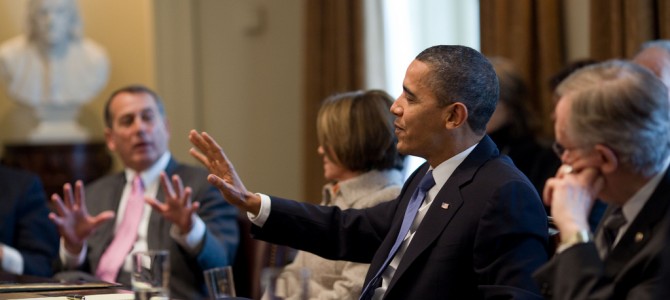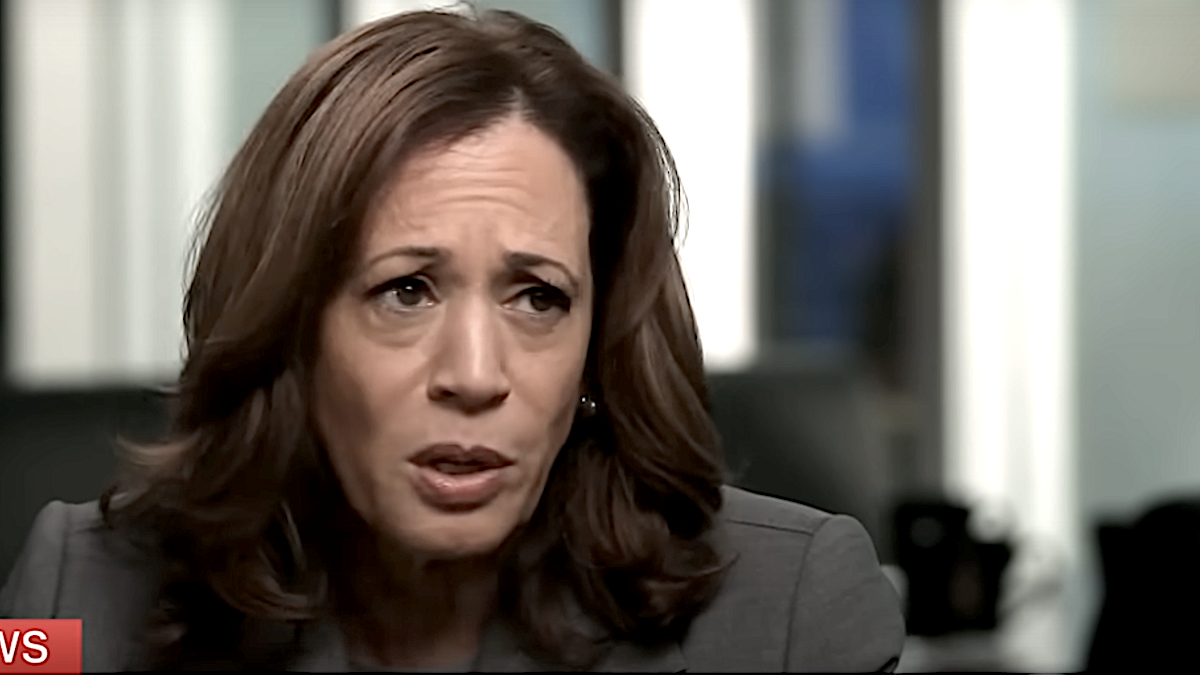
Hey, remember that idea about continuing the shutdown but making a short term deal on the debt ceiling? It looks like people who actually matter in Republican leadership are now embracing it.
Many House Republicans, including some key leaders, have decided they can live with a government shutdown but not with the threat of default. In the hours ahead, look for the GOP to seek a deal with President Obama and Democrats on at least a short-term increase in the debt limit, while standing firm on their requirement that a continuing resolution to fund the government must contain some significant measure to limit Obamacare. The bottom line: Republicans have discovered the world did not end when shutdown became a reality – but they’re not willing to risk it with the debt ceiling. House Speaker John Boehner discussed the strategy in some detail during a meeting Wednesday with GOP freshmen. He explained that “the shutdown is just much less painful than the debt limit if the markets start rattling,” according to a lawmaker who was there. “He basically told us that he’s not going to allow us to breach that date.” …
One proposal under consideration is for Republicans to pass a short term increase in the debt limit – perhaps in the six-week range – without accompanying demands for spending cuts or other GOP priorities. That plan appears to have the support of some of the outside groups, including Heritage Action and FreedomWorks, that have pushed hard for Republicans to keep up the Obamacare fight. Temporarily settling the debt limit standoff, representatives of the groups say, would allow the House GOP to continue battling for limits on Obamacare. If adopted at a Republican meeting Thursday, the strategy would be yet another example of Boehner accommodating the most conservative wing of the GOP conference, the one that has been driving the Obamacare fight all along.
More here. Matt Lewis credits the idea to Erick Erickson and me, but really, it’s so obvious and logical that it had to have occurred to leadership beforehand. The real important aspect was that Heritage Action and Freedomworks indicated they wouldn’t make a stink about a short term increase, and that’s what set the stage for what is likely Boehner’s pitch today, holding the caucus together by giving conservatives a continued fight on Obamacare, while giving the moderates relief on the debt limit strain.
Speaker John Boehner (R-Ohio) presented the proposal to rank-and-file Republicans in a closed-door meeting Thursday, hours before more than a dozen GOP lawmakers head to the White House to meet with Obama.
“It is our hope that the president will look at this as an opportunity and a good-faith effort on our part to move halfway, halfway to what he’s demanded in order to have these conversations begin,” Boehner told reporters after the meeting. Boehner said the ending of the shutdown would depend on how the president responded. “That’s the conversation we’re going to have with the president today,” he said.
The House hopes to move quickly on the plan, but a vote would not occur before the White House meeting, scheduled for 4:30 p.m., aides said. The debt limit bill would also restrict the Treasury Department from using “extraordinary measures” to increase borrowing after Nov. 22, aides said. “The date in the bill is the real date — no more monkeying around,” a leadership aide said.
This is a smart tactical move for all the reasons I went into last week. While a shutdown is both temporary and doesn’t fall directly on the American people in the form of pain, messing around with debt ceiling brinkmanship can absolutely send the market into a spiral and make everyone with a 401k worry. It even has the added benefit of creating a division between Senate Democrats – who are happy to risk default, confident Republicans would be blamed – and the president, who seems far more willing to agree to a can kick.
The debt ceiling play that moderates were originally selling was always a bad move for that reason, no matter what the fight was about (worse still was the oh so very #ThisTown trade of tangible, real sequester cuts for the promise of talks in commissions or working groups about future entitlement cuts). A short term “clean” debt ceiling increase, which normally would be a problem for conservatives to swallow, isn’t attracting the opposition of outside groups now because they realize debt and default is the second half of every sentence uttered about the shutdown. They picked their hill to fight on, and they should stick to it.
But what comes after that brief debt limit delay, in the continued shutdown scenario? Ross Douthat is very pessimistic that any of this will amount to anything.
But the shutdown itself is just a classic march of folly. From RedState to Heritage to all the various pro-shutdown voices in the House, nobody-but-nobody has sketched out a remotely plausible scenario in which a continued government shutdown leads to any meaningful, worth-the-fighting-for concessions on Obamacare — or to anything, really, save gradually-building pain for the few House Republicans who actually have to fight to win re-election in 2014, and the ratification of the public’s pre-existing sense that the G.O.P. can’t really be trusted with the reins of government.
Except … the House Republicans weren’t trusted with anything like the reins of government even before the shutdown, either (they were already the most unpopular Congress ever before the last election – should they really fear the difference between 14 percent popularity then and 10 percent popularity today?). The American people have a longstanding belief, bolstered by a century of campaigning, that Democrats generally love government and Republicans generally hate it, and that’s fine in a midterm election, especially in an era when no one trusts the government with anything.
The logical, responsible policy move here given Obamacare’s disastrous launch would be an individual mandate delay, just like Jon Stewart and Wolf Blitzer have suggested. Douthat’s right that Obama won’t ever agree to do that. But every day he doesn’t is a good day to advance the argument, and asserting that delay as the price of reopening the government doesn’t mean you have to get it in order to be successful.
And what’s the alternative? Some folks apparently think there’s some deal to be made on the debt ceiling regarding entitlements – is that really more feasible? Boehner’s held his caucus together with the exception of a few grumbling moderates, and any policy win he gets is a policy win he wouldn’t have had otherwise.









